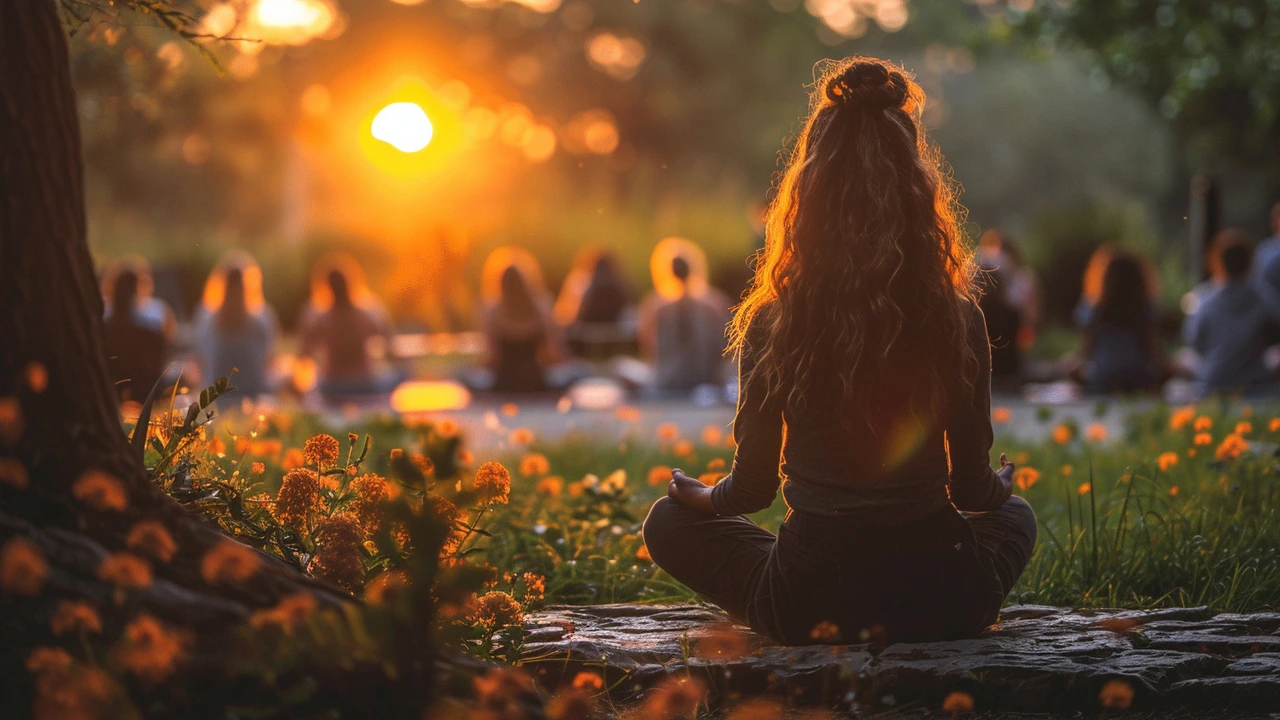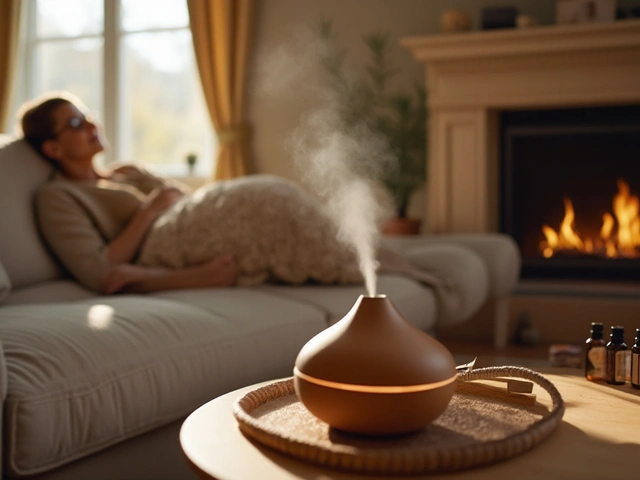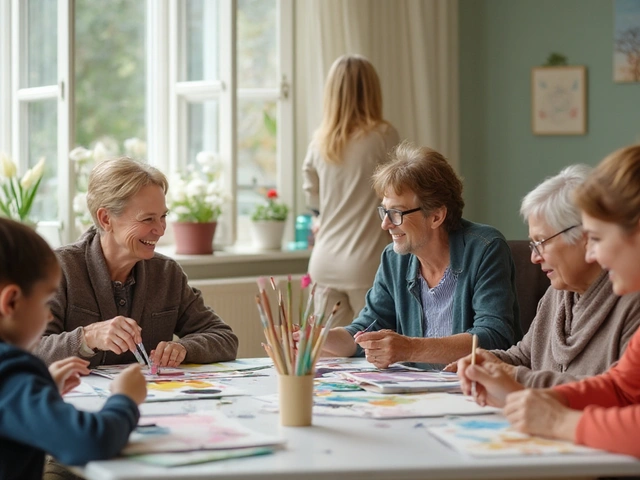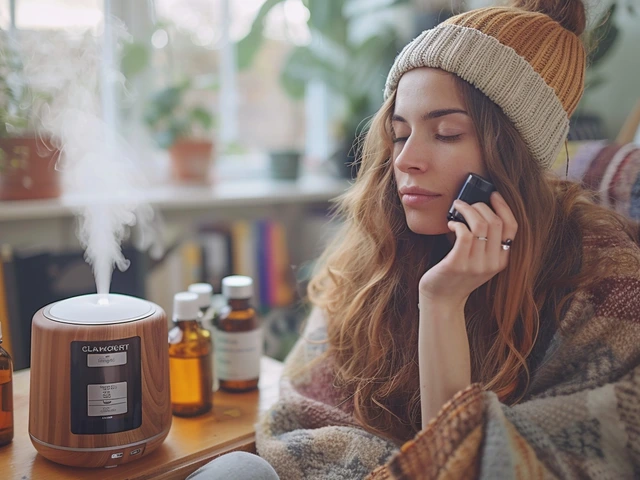In today's fast-paced world, finding effective ways to unwind has become essential, especially for millennials balancing multiple responsibilities. This guide offers simple and practical relaxation techniques to help restore calm and well-being.
From practicing mindfulness to incorporating creative outlets into your routine, these methods are designed to fit even the busiest schedules. Dive into this comprehensive resource to discover how you can integrate these relaxation techniques into your everyday life.
- Understanding Millennial Stress
- Mindfulness and Meditation
- Digital Detoxing
- Physical Activity and Exercise
- Creative Outlets
- Sleep Hygiene
Understanding Millennial Stress
The millennial generation, those born between 1981 and 1996, face unique stressors that differentiate them from previous generations. Being the first generation to grow up with the internet, social media, and rapid technological advancements, millennials experience life pressure in ways older generations might not fully grasp. Balancing work, social obligations, family life, and personal time has become a juggling act of epic proportions.
Statistically, millennials report the highest levels of stress compared to other generations. According to the American Psychological Association (APA), millennials have an average stress level of 5.4, compared to the national average of 4.9 on a scale from 1 to 10. This increased stress can be attributed to several factors, including financial instability, job market competition, and the overwhelming onslaught of information through constant connectivity.
Financial stress is a significant contributor. With student loans reaching astronomical levels and housing markets fluctuating, many millennials find achieving financial independence challenging. According to a 2021 survey by the National Association of Realtors, only 37% of millennials could afford to buy a home without external financial support. This economic pressure often spills over into other areas of their lives, intensifying their need for effective relaxation techniques.
Another major stressor is the digital world. Social media platforms like Instagram and Facebook create environments where comparisons are inevitable. Millennials often find themselves measuring their own success against curated images of other people's lives, leading to feelings of inadequacy and anxiety. A report by the Royal Society for Public Health in the UK highlighted that social media usage is linked to increased anxiety and depression among young adults.
Work-life balance also adds to millennial stress. Unlike previous generations that often settled into long-term positions and stable careers, millennials tend to hop between jobs more frequently. A Gallup poll found that 21% of millennials have changed jobs within the past year, which can lead to job insecurity and lack of long-term financial planning. The gig economy, while offering flexibility, also contributes to this instability.
"Millennials are dealing with issues that didn't exist 20 or even 10 years ago," says Dr. Jean Twenge, author of 'iGen'. "The constant connectivity, economic shifts, and changing societal expectations all play a role in their heightened stress levels."
Given these multifaceted stressors, it's crucial to recognize and understand the specific pressures that millennials face. This awareness can pave the way for effective strategies to mitigate stress and promote a more balanced lifestyle.
Mindfulness and Meditation
Mindfulness and meditation have emerged as essential tools in managing stress and improving mental wellness for millennials. With the constant influx of information and the fast pace of modern life, setting aside time to center yourself can be transformative. Mindfulness involves being fully present in the moment and acknowledging one's feelings, thoughts, and bodily sensations without judgment. It is about fostering a deeper connection with oneself and the world around us.
One of the best-known mindfulness practices is meditation. It is a technique that encourages focused attention and awareness. Research has shown that regular meditation can lead to significant improvements in mental health. According to a study published in JAMA Internal Medicine, mindfulness meditation can help reduce symptoms of anxiety and depression. This makes it a vital practice for many seeking to improve both their mental and emotional well-being.
There are a variety of meditation techniques to explore, and finding the one that works best for you is key. Here are a few popular options:
- Guided Meditation: This involves listening to a guide who helps you visualize peaceful scenarios, often leading to a relaxed state.
- Breath Awareness Meditation: Focuses on breathing patterns as a way to cultivate mindfulness and calm the mind.
- Body Scan Meditation: Involves paying close attention to different parts of your body, bringing awareness and relaxation to each area.
- Loving-Kindness Meditation: A practice that focuses on developing compassionate feelings for oneself and others.
Regular meditation practice doesn’t require long hours. Even dedicating just 10-15 minutes daily can make a noticeable difference. For those just starting, there are numerous apps and online resources available that offer structured programs and sessions.
A common misconception is that you need a quiet environment to meditate effectively. While this can certainly help, it's not always necessary. Learning to meditate in various settings can make it easier to integrate into a busy life. Experiment with different times of the day and types of meditation to find what suits you best.
“Meditation is not a way of making your mind quiet. It is a way of entering into the quiet that is already there.” – Deepak Chopra
In addition to meditation, practicing daily mindfulness can also reduce stress. Simple acts such as mindful eating, where you focus on the texture and taste of your food, or mindful walking, where you pay attention to the sights and sounds around you, can have a calming effect.
Incorporating mindfulness and meditation into your daily routine is a gradual process. Start small, remain consistent, and be patient with yourself. Over time, these practices can lead to profound changes in how you perceive and react to stress, ultimately contributing to a more balanced and peaceful life.
Physical Activity and Exercise
Physical activity is a powerful way to combat stress and achieve relaxation. When you engage in exercise, your body releases endorphins, which are known as 'feel-good' hormones. These endorphins help improve your mood and can make stress seem more manageable. Regular exercise not only benefits your physical health but also your mental wellness. It's important to integrate exercise into your routine to maintain a balanced lifestyle.
How you choose to move your body is entirely up to you. Some prefer the structure and community of a gym class, while others might enjoy the tranquility of yoga. **Yoga** is especially beneficial as it combines physical activity with mindfulness, helping you focus on your breathing and stay present in the moment. For those who love the outdoors, activities such as hiking or cycling can offer both exercise and a healthy dose of nature.
Cardio workouts such as running, swimming, or dancing are excellent for raising your heart rate and burning calories. These activities help reduce anxiety and improve heart health, ensuring you feel more energized throughout the day. Weight training, on the other hand, focuses on building strength and can be a great way to relieve stress through the release of tension in your muscles.
Another option is to incorporate small bouts of exercise into your daily routine. Taking the stairs instead of the elevator, walking or biking to work, or even a quick 10-minute workout at home can all make a difference. Consistency is key; even short, regular sessions can contribute to your overall well-being. Here are some ideas to get you started:
- Morning Stretch: Begin your day with a 10-minute stretching routine to wake up your muscles and boost your mood.
- Walk Breaks: Take short walks during your lunch break or between tasks to clear your mind and get some fresh air.
- Home Workouts: Use online resources to find quick home workout videos that you can fit into your schedule anytime.
According to the American Heart Association, “Adults should get at least 150 minutes of moderate-intensity physical activity each week.”
Keeping track of your progress can also be motivating. Consider using a fitness app or journal to log your activities and see how far you've come. Invite a friend to join you for added motivation and accountability. Remember, the best exercise is the one you enjoy and can stick with.
Creative Outlets
Engaging in creative activities can do wonders for mental wellness, offering a much-needed break from the daily grind. As millennials, our go-to is often digital entertainment like streaming services or social media. However, tapping into more hands-on creative pursuits can provide deeper, long-lasting relaxation and fulfillment.
Pursuing hobbies like painting, drawing, or crafting allows you to express emotions and thoughts without the need for words. It's a powerful form of self-expression that can help alleviate stress and anxiety. Creating something tangible can also boost self-esteem and provide a sense of accomplishment. Take, for instance, adult coloring books, which have surged in popularity. They offer an easy and accessible way to channel creativity and mindfulness. Studies have shown that just 45 minutes of engaging in art can significantly reduce cortisol levels, the body's primary stress hormone.
An often overlooked avenue is writing. Whether it's journaling, poetry, or even working on a novel, writing can be therapeutic. It helps you process feelings, organize thoughts, and create a narrative of your experiences. This reflective practice is not only relaxing but also immensely beneficial for mental clarity and emotional balance.
Music is another splendid outlet. Playing an instrument, singing, or simply listening to your favorite tunes can profoundly impact your mood and stress levels. Music therapy is widely recognized for its ability to improve mental health. Creating your playlists can be a fun and relaxing activity in itself, and listening to those playlists can turn a mundane chore into a pleasurable experience.
For those who prefer more active pursuits, dance can be an excellent creative outlet. You don't need to be a professional to enjoy the benefits of dancing. It's a fantastic way to connect with your body, express emotions through movement, and even get some physical exercise. Dance has been found to reduce symptoms of depression and anxiety, improve cardiovascular health, and enhance cognitive functions.
"To engage in creative activity is a way of finding our true selves. It is where we lose ourselves and find ourselves simultaneously." - Stephen Nachmanovitch
Another effective way to integrate creativity into your daily life is through DIY projects. This could be anything from home decor to fashion, or even gardening. These activities not only allow you to be creative but also yield practical benefits that enhance your living space.
Combining social interaction with creativity can also be incredibly rewarding. Joining a book club, attending a cooking class, or participating in group art sessions can provide a social outlet while also fostering creative expression. These group activities can help build a sense of community and reduce feelings of isolation, which are common stressors for many.
Utilize weekends or free evenings to explore new creative pursuits. The key is to make time for activities that genuinely bring you joy and allow you to unwind. Remember, the goal of these creative outlets is not perfection but relaxation and self-expression. So, dive into a new creative hobby today, and discover how it can significantly enhance your mental wellness.
Sleep Hygiene
Getting a good night's sleep is fundamental to our well-being, yet many millennials struggle with achieving quality rest. The concept of sleep hygiene revolves around creating an optimal sleep environment and adopting habits that promote better sleep. Understanding the importance of sleep can transform your nightly routine and boost your overall health.
A pivotal aspect of sleep hygiene is maintaining a consistent sleep schedule. Going to bed and waking up at the same time every day helps regulate your body's internal clock, making it easier to fall asleep and wake up naturally. In addition, creating a soothing pre-sleep routine can signal to your body that it's time to unwind. This might involve activities like reading a book, taking a warm bath, or practicing gentle yoga.
The sleep environment plays a crucial role too. Ensure your bedroom is a tranquil space by minimizing noise and light. Investing in blackout curtains and a white noise machine can make a significant difference. Moreover, the bedroom should be a sanctuary for sleep and relaxation; this means removing distractions like work-related items and keeping electronic devices to a minimum.
Speaking of electronics, limiting screen time before bed is essential. The blue light emitted from phones, tablets, and computers can interfere with the production of melatonin, the hormone that regulates sleep. It is recommended to impose a digital curfew at least an hour before bed to help your mind and body wind down.
Another important factor in sleep hygiene is managing caffeine and alcohol intake. While a cup of coffee in the morning can be a pleasant start to the day, consuming caffeine later can hinder your ability to fall asleep at night. Similarly, while alcohol might initially make you feel sleepy, it can disrupt your sleep cycle and lead to poorer quality rest. It's healthier to steer clear of caffeine and alcohol several hours before bedtime.
Regular physical activity is also beneficial for sleep. Engaging in exercise, whether it's a vigorous workout or a calming yoga session, can help you fall asleep faster and enjoy deeper sleep. However, try to avoid strenuous exercise close to bedtime as it might energize rather than relax you.
Creating a comfortable sleep space includes investing in a good mattress and pillows that support your sleep posture. Comfort is key, and having a bed that suits your preferences can drastically improve your sleep quality. Bedding materials, like sheets and blankets, should also be comfortable and suited to your climate to enhance coziness and provide the right temperature for sleep.
An often-cited insight from the National Sleep Foundation notes, "Adults should aim for 7-9 hours of sleep per night to function at their best." Prioritizing sleep can significantly affect your productivity, mood, and overall health.
Lastly, managing stress and anxiety is crucial for sleep hygiene. Techniques like mindfulness meditation or breathing exercises before bed can help calm an overactive mind. Journaling thoughts or worries can also be a good practice, allowing you to clear your mind before attempting to sleep.
Incorporating these sleep hygiene practices into your routine can lead to better sleep quality and, by extension, a more balanced and healthy life. Making small changes can have a big impact on your overall well-being. Good night!






